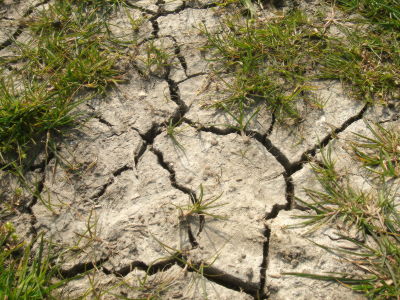The number of ``olive thieves'' is rapidly increasing due to the soaring price of olive oil, and there are cases where they cut down trees that are over 100 years old and steal tractors along with them.

Olive oil, which is used in a variety of dishes and is familiar at home,
As olive oil price soars, thieves target Mediterranean trees - Los Angeles Times
https://www.latimes.com/world-nation/story/2023-11-08/olive-oil-price-soars-thieves-target-old-trees

Spain, which accounts for about 40% of the world's olive oil production, has been hit by a severe drought since 2022. As a result, global olive oil production is expected to decline from 3.75 million tons in 2022 to 2.76 million tons in 2023.
As production volume declines, the price of olive oil is also rising. The benchmark price of extra virgin olive oil in Spain, Greece, and Italy, the major olive producing countries, will reach $4.35 (about 660 yen) per pound (about 453 grams) in September 2023, three times the price in 2019. It is said that the level is higher than that.
This increase in transaction prices is manifested in an increase in consumer costs. In Greece, the price of extra virgin olive oil per liter was 8 to 9 dollars (about 1,200 to 1,400 yen) in 2022, but it has jumped to 15 dollars (about 2,300 yen) in 2023.
Under these circumstances, crimes such as theft of olives stored in warehouses, dilution of high-quality oil with inferior products, and falsification of shipping data are increasing in countries such as Spain, Greece, and Italy on the Mediterranean coast, which are the centers of olive cultivation. It is said that they are doing so. One of the biggest problems is that olive thieves use chainsaws to cut down olives and steal them whole.

The olive farm owned by Konstantinos Markou, a resident of Greece, on the outskirts of Athens was attacked by olive thieves and 15 trees, including a 150-year-old olive tree, were cut down. 'Olive thieves sometimes produce more oil than the growers themselves. It's true,' said Markou, who goes out to patrol the plantations after dark.
The thieves cut down the olive trees, divide them into easily transportable pieces, load them into pickup trucks, transport the olives to oil mills, and sell the remaining tree trunks and branches to lumber companies. Neiros Papafristou, who owns a fourth-generation olive farm, said: ``Thieves look for heavy branches and cut them down. So they don't just steal the olives, they do serious damage to the trees. 'It will take four to five years,' he said.
Some farmers, wary of the rise in olive thieves, have started harvesting olives earlier than usual, which means less efficient olive oil production. According to Christos Bekas, a farmer who owns 5,000 olive trees, the weight of olives needed to produce 1 kg of olive oil will be 2.5 times more than in 2022 due to the earlier olive harvest. He said.

Spanish police announced in October that they had recovered 100 tonnes of olives stolen in the past few weeks, and six suspects were arrested in February for stealing a total of 8.8 tonnes of olives in southern Greece. Ta. Meanwhile, olive thieves around Bari , a port city in southwestern Italy, are gradually escalating and are now stealing not only olives but also tractors and expensive agricultural tools.
Bari's agricultural association has requested police assistance after reports that as many as 100 olive trees were destroyed or damaged in one attack. Gennaro Scicolo, leader of the agricultural association, said the economic damage caused by olive thieves was enormous and said, ``Farmers must be protected.''
Related Posts:
in Junk Food, Posted by log1h_ik







